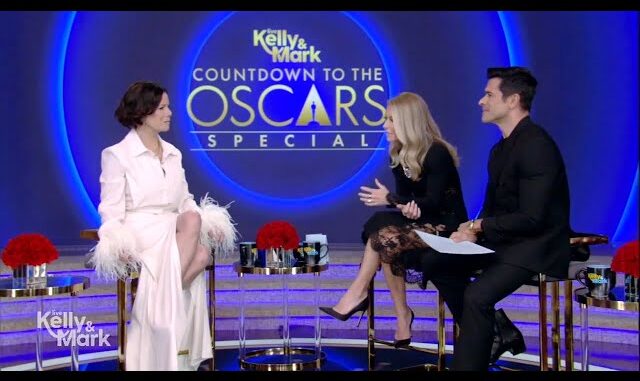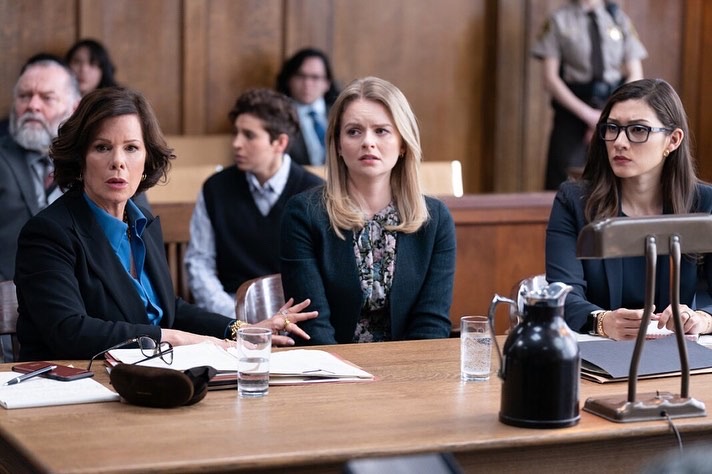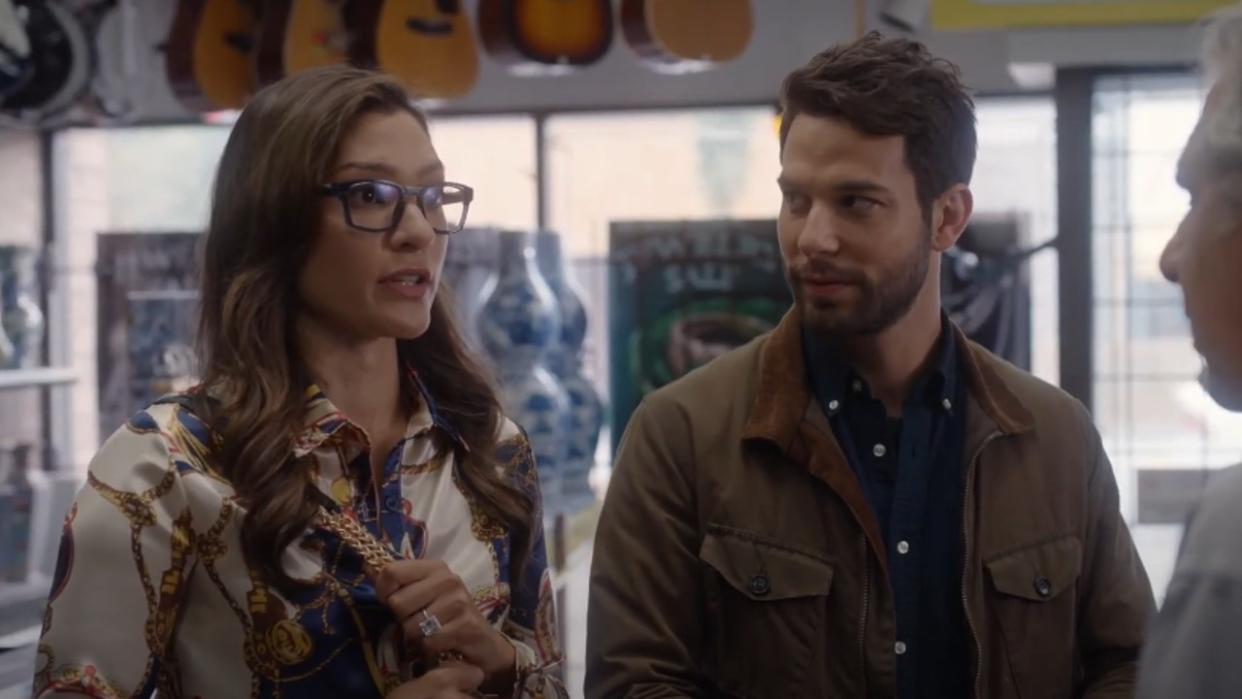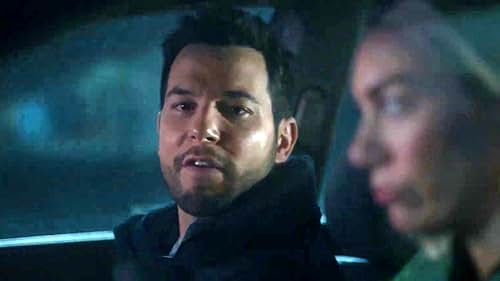
The cancellation of So Help Me Todd came as a punch to the gut for many viewers. The legal drama, which combined humor, family dynamics, and courtroom intrigue, had a unique charm. But despite its potential, CBS made the difficult decision to cancel the show after its first season. While the move was heartbreaking for fans, CBS’s decision seems to have been a smart one in the grand scheme of things.
In this article, we’ll dive into why So Help Me Todd didn’t make the cut, the factors that led to its cancellation, and how CBS ultimately made the right call, even though it left viewers heartbroken.

The Rise and Fall of So Help Me Todd: A Quick Overview
Before we get into why CBS’s decision was justified, let’s take a moment to recap what So Help Me Todd was all about. The show, starring Skylar Astin as Todd and Marcia Gay Harden as his overbearing mother, was a blend of comedy and drama centered around a quirky family dynamic with a legal backdrop. It had all the elements that should’ve made it a hit: a solid cast, intriguing storylines, and a mix of lighthearted moments with serious legal cases.
However, despite these promising elements, the show struggled to find its footing. Let’s look deeper into why CBS ultimately decided to pull the plug on So Help Me Todd.
Why Was So Help Me Todd Cancelled? Understanding the Network’s Decision
There are several reasons why CBS decided to cancel So Help Me Todd. One of the key factors was its lackluster performance in the ratings. Although the show had a strong debut, it couldn’t maintain a steady audience. This is crucial for networks like CBS that rely heavily on consistent viewership to keep shows on the air.
Another reason was the competition in the primetime lineup. With so many options available to viewers, So Help Me Todd couldn’t carve out a niche that kept viewers hooked week after week. The show’s audience dwindled as time went on, and CBS likely realized that investing more in a show with diminishing returns wasn’t the best move.
Additionally, the network might have been eyeing other shows with more potential for long-term success. In a competitive landscape, decisions often come down to what will keep the audience engaged and which shows can bring in the ratings and buzz necessary to keep the network thriving.
The Challenges of Building a Strong Audience: Why First Seasons Are Critical

For any show, the first season is a make-or-break moment. So Help Me Todd had all the right ingredients to be successful, but it couldn’t seem to gather a solid fanbase. Part of the reason for this is the importance of establishing a unique identity right out of the gate. So Help Me Todd seemed to struggle with finding its voice. Was it a procedural legal drama? A family comedy? The balance between the two felt off, leaving audiences uncertain about what kind of show they were watching.
First seasons are incredibly critical for this reason. If a show doesn’t find its rhythm early on, viewers can easily lose interest. And unfortunately, this seemed to be the case for So Help Me Todd.
CBS’s Commitment to Quality Programming: Why the Network Makes Tough Decisions
CBS is known for its strong slate of programming, from NCIS to The Good Wife. The network doesn’t shy away from making tough calls when it comes to content. If a show isn’t delivering, even with a well-known cast or promising premise, the network will ultimately prioritize other investments.
In the case of So Help Me Todd, CBS had to weigh the potential for long-term success versus short-term gains. While the show had an intriguing premise and decent initial ratings, the network likely felt that it wasn’t enough to justify continued investment. It’s a harsh reality in the television industry, but it’s one that helps CBS maintain its reputation for producing high-quality, high-performing content.
Could So Help Me Todd Have Been Saved? The Reality of TV Show Lifecycles
Could So Help Me Todd have been saved with some tweaks? It’s possible. There are many instances where shows get second chances, but this is often reserved for programs with a very dedicated fanbase or those with potential for growth. Shows like Brooklyn Nine-Nine and The Mindy Project are prime examples of series that bounced back from near-cancellations due to their fan support.
Unfortunately, So Help Me Todd didn’t seem to have that kind of passionate following. While the show may have had some devoted fans, it didn’t generate the kind of buzz that networks can rely on to keep a show alive. The reality is that TV show lifecycles are delicate, and sometimes, even great shows don’t get the time they need to evolve.
CBS Made the Right Call: Evaluating the Decision in the Bigger Picture
Looking at the broader context of CBS’s programming lineup, it’s clear that the network had to make a choice. It had a packed schedule with successful shows like Blue Bloods and FBI, and keeping So Help Me Todd around could have meant sacrificing more promising options.
In the end, CBS’s decision was likely based on a combination of factors: low ratings, stiff competition, and a desire to invest in more successful properties. While it’s always tough to see a show go, networks like CBS need to make decisions based on what will drive viewership and revenue.
The Future of Legal Dramas on TV: What’s Next for This Genre?
So, what does the cancellation of So Help Me Todd mean for the future of legal dramas on TV? Is this the end of the road for shows in this genre? Not necessarily. Legal dramas continue to be a staple on television, but the market has become more competitive. Shows need to bring something unique to the table to stand out.
The success of The Good Fight and Law & Order: SVU proves that there’s still a strong appetite for courtroom dramas. However, So Help Me Todd struggled to distinguish itself. The future of legal dramas will likely see more shows that blend genres, like The Lincoln Lawyer, which mixes legal intrigue with action and suspense.
Why Fans Are Disappointed: A Closer Look at the Show’s Emotional Impact

Fans of So Help Me Todd may feel betrayed or disappointed by its abrupt cancellation. After all, it’s hard to invest time in a show only to have it yanked away so quickly. The emotional connection viewers develop with characters and storylines is powerful, and seeing a beloved show end prematurely can be gut-wrenching.
But it’s important to remember that the decision to cancel wasn’t personal. It was a business decision that took into account the broader trends in television programming. Still, that doesn’t make it any easier for fans who were hoping for more from the show.
What CBS Could Have Done Differently: The ‘What Ifs’
While CBS likely made the right decision, it’s easy to wonder if there were things that could have been done differently. Could the show have been marketed better? Could the writing have leaned more into its strengths? These are questions that will remain unanswered, but they highlight the challenges faced by creators and networks in a fast-paced media environment.
Could More Promotion Have Helped?
It’s possible that with a more robust marketing campaign, So Help Me Todd could have attracted a larger audience. Sometimes, the difference between a show’s success and failure is simply visibility. If more viewers had known about the show, it might have gained traction.
